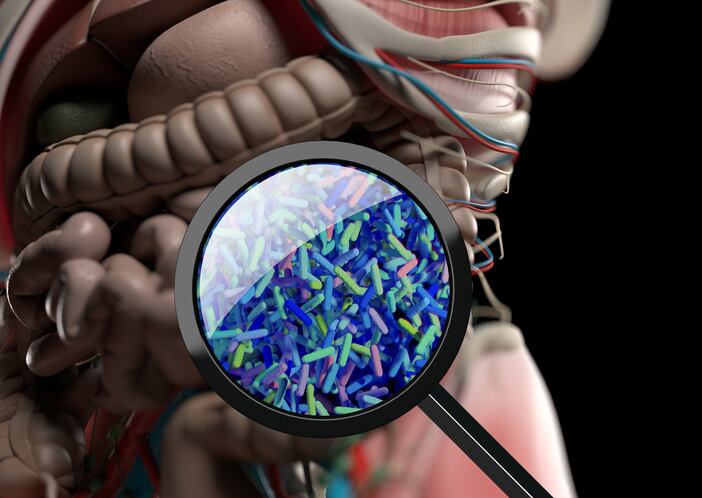Probiotics are widely understood to improve the clinical symptoms of patients with gastrointestinal diseases and regulate the gut microbiota. However, few studies have investigated the effects of probiotics on the gut microbiota of healthy people, and these studies have yielded inconsistent conclusions.
LRa05 is an isolate found in infant feces. In vitro and in vivo studies have demonstrated several properties of LRa05, including acid and bile tolerance, antagonism against enteropathogenic E. coli, and immunomodulatory, cholesterol-lowering, and antioxidant effects in vivo.
In animal models, the Lacticaseibacillus rhamnosus strain LRa05 (LRa05) has been found to modulate the gut microbiota and offer gut-localized immunomodulatory effects, but studies in healthy humans are lacking.
In this study, published in 'Frontiers in Nutrition', healthy young adults were administered 1 × 1010 colony-forming units (CFU) of LRa05 daily for 28 days. Each subject’s gut microbiota composition was analysed before and after intervention to determine the effect on the gut microbiota.
They found the relative abundance of Lacticaseibacillus significantly increased in the probiotic group and witnessed a decreasing trend in the abundance of Sellimonas and salmonella infection pathway.
The authors conclude: "Overall, our findings suggest the tolerance and colonization potential of LRa05 and, in particular, its potential ability to modulate the gut microbiota and reduce the abundance of harmful bacteria."
Research background
Probiotics have been shown to modulate the gut microbiota and reduce the relative abundance of harmful bacteria in healthy subjects. However, several clinical studies have shown that probiotic interventions do not cause significant changes in the faecal microbial composition. Individual differences in susceptibility to probiotics and cross-study differences in probiotic dosage and intervention duration can influence the observed effects of probiotics.
What's more, the effects of probiotics are less easily assessed in healthy people than in people with disease due to the lack of an internationally accepted consensus on normal or healthy faecal microbial communities.
That said, clinical studies have shown an increase in the abundance of lactic acid bacteria in healthy adults after the ingestion of Lactobacillus strains. However, McNulty et al. showed that consumption of yogurt containing five probiotics did not alter the gut microbiota composition in young adults. In addition, several clinical studies have shown that probiotic intervention did not cause significant changes in faecal microbiota composition in terms of alpha diversity and beta diversity compared with placebo.
The study
A sample of 100 healthy subjects (aged 19 and 45 years with a BMI between 18.5 and 25 kg/m2) were recruited to the study conducted at Henan University of Technology, Zhengzhou, China, and randomised 1:1 to receive maltodextrin (placebo, CTL group) or maltodextrin plus the probiotic (1 × 1010 colony-forming units/day, LRa05 group) for four weeks.
Volunteers did not consume products containing probiotics during this period or during the 2-week pre-intervention washout period. No additional dietary restrictions were imposed.
The study consisted of two visits. During the first visit (before intervention), each subject’s height, weight, and blood pressure were measured. At the end, each subject’s body fat percentage was measured. A Bristol Stool Form Scale (BSFS) questionnaire was used to evaluate subjects’ stool forms and faecal samples were collected pre- and post- intervention to assess the subjects’ gut microbiota.
In terms of alpha diversity, no significant difference in the composition of the gut microbiota was found between the groups. However the relative abundance of Lacticaseibacillus significantly increased in the probiotic group. Furthermore, a decreasing trend in the abundance of Sellimonas and a significant decrease in the salmonella infection pathway were observed in the probiotic group.
Limitations
The authors note some key limitations in this study. they note that the analysis is based on a Chinese cohort of young adults within a small age range. Second, the analysis included only two time points and did not consider dynamic changes in the gut microbiota. Third, although probiotics have been reported to enhance immunity, they did not test other blood parameters.
The report states: "The use of blood parameters or metabolic profiling and clinical studies of disease cohorts to confirm our findings is necessary to assess the regulatory effects of probiotics on the gut microbiota and the associated effects on human health."
Source: Frontiers in Nutrition
https://doi.org/10.3389/fnut.2023.1105694
"Changes in the gut microbiota composition of healthy young volunteers after administration of Lacticaseibacillus rhamnosus LRa05: A placebo-controlled study"
Gai. Z., et al


